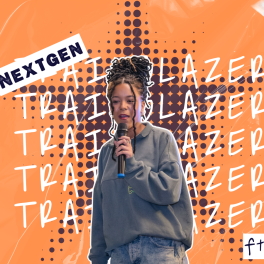
Please note: this article includes sensitive topics that some people might find difficult. Please visit our Resources Page for help.
Alcohol addiction is characterized by over-the-top drinking and the failure to have control over drinking liquor. The problem is commonly known as AUD; Alcohol Use Disorder. It is an ailment which makes an individual feel powerless to stop or control the consumption of liquor regardless of the consequences that can influence the individual’s wellbeing, occupation, and even social lifestyle. According to the National Institute on Alcoholism Abuse and Alcoholism, AUD could be mild, moderate, or severe. The lasting aftereffects of AUD can cause delayed consequences and cause the individual to have setbacks.
This is worrisome and proves a struggle for the recovering alcoholic. Without proper care and intentionalism on the individual’s part, relapsing is quite easy. A national survey showed that, “14.1 million adults ages 18 and older (5.6 percent of this age group) had AUD in 2019. Among the underaged group, 414,009 (1.7 percent of this group) also had AUD within this time frame”. This study further acknowledges that AUD affects not only adults, but the younger generation as well.
My journey with AUD began in 2021. It does not mean I was not drinking before this year, I just had a much higher degree of control. The first time I had alcohol excessively was in 2019. I had just gotten into college, and as a 17-year-old, I was having my first taste of freedom and independence. I remember walking into a supermarket and grabbing a random bottle because it looked nice. The cashier gave me the look but decided to remain silent. I got drunk for the first time, and I enjoyed the experience. However, the next time I drank a whole bottle, I felt depressed.
People who struggle with AUD do for a lot of reasons. It could be the mere joy that comes from drinking or because they were introduced to alcohol at an early age. For others, it is caused by mental health issues, which was the reason why I struggled with it. I dealt with a lot of depression and anxiety last year. I was in my final year at college, I was dealing with the extra workload, I was dealing with a break-up, and I was battling depression and anxiety on top of it all. It was a huge struggle for me.
I remember starting with a can of beer and proceeding to two cans and moving to a full bottle of vodka. I was spiralling, but I didn’t care. Every night before going to bed, I must have at least two cans of beer to help me sleep better. It became a sort of “medication” I was hooked on. During the day, I would sneak alcohol into a water bottle and sip it in between classes. I was barely sober, and my sober moments were only characterized by me brooding, and I did not want to brood. It also did not help that my friends constantly threw house parties. I was drinking day in, day out. I got to a dark place where a day without alcohol felt so melancholic. Alcohol became my reason to survive.
In May of that same year, I had a grave brush with death. One moment I was in my home, and the next, I was being hurried to the emergency clinic. An oxygen mask was put over my face to guarantee I was breathing since I was unable to inhale all alone. I was going through seizures, and my body became limp eventually. What began as a regular day would twist into long stretches of distress and despondency. I would proceed spend a long period in the emergency clinic.
That experience is still one of the most horrendous encounters of my life. I would be in a steady condition of melancholy, lament, and outrage. The expressions of my cardiologist echo in my head to this day. He said, "you are too youthful to even consider managing this condition. If you don't stop, you could die." I never fail to remember the dread I felt when he said that. Not only was I trying to heal from what my body had just been through, but I was also managing a liquor withdrawal process. Gently put, it was an awful state to be living in. I needed to see a therapist, I needed to put forth cognizant attempts to keep away from the consumption of liquor.
Nobody can appropriately put into words the experience of living with AUD. As an individual wanting to break free, it can be a tough process. But I have been impacted by my experiences, and I am putting forth better attempts to work on my life. Basically, I am moving with purposefulness. However, it is always a battle not to relapse. I have taken a couple of sips since, however, I am figuring out how to avoid drinking alcohol at all. All that's needed is one taste to lead you down that road once more.
Recuperating from a liquor dependence is difficult. You need to ensure you are surrounded by a loving community that will make sure you recover and grow. Therapy helps, medications, and even exercises like meditation could aid help you control and battle the inclination. I would end this piece by telling you that you are a fighter and are stronger than you think. It is also helpful to remember that talking with a trusted individual is better than searching for comfort in a bottle. I also try and remind myself of that. The road to recuperation is difficult, however, it can be accomplished with time and effort. It is also important for family and loved ones of people living with AUD to remember to treat them with love, kindness, and patience.
Support Young Creators Like This One!
VoiceBox is a platform built to help young creators thrive. We believe that sharing thoughtful, high-quality content deserves pay even if your audience isn’t 100,000 strong.
But here's the thing: while you enjoy free content, our young contributors from all over the world are fairly compensated for their work. To keep this up, we need your help.
Will you join our community of supporters?
Your donation, no matter the size, makes a real difference. It allows us to:
- Compensate young creators for their work
- Maintain a safe, ad-free environment
- Continue providing high-quality, free content, including research reports and insights into youth issues
- Highlight youth voices and unique perspectives from cultures around the world
Your generosity fuels our mission! By supporting VoiceBox, you are directly supporting young people and showing that you value what they have to say.





